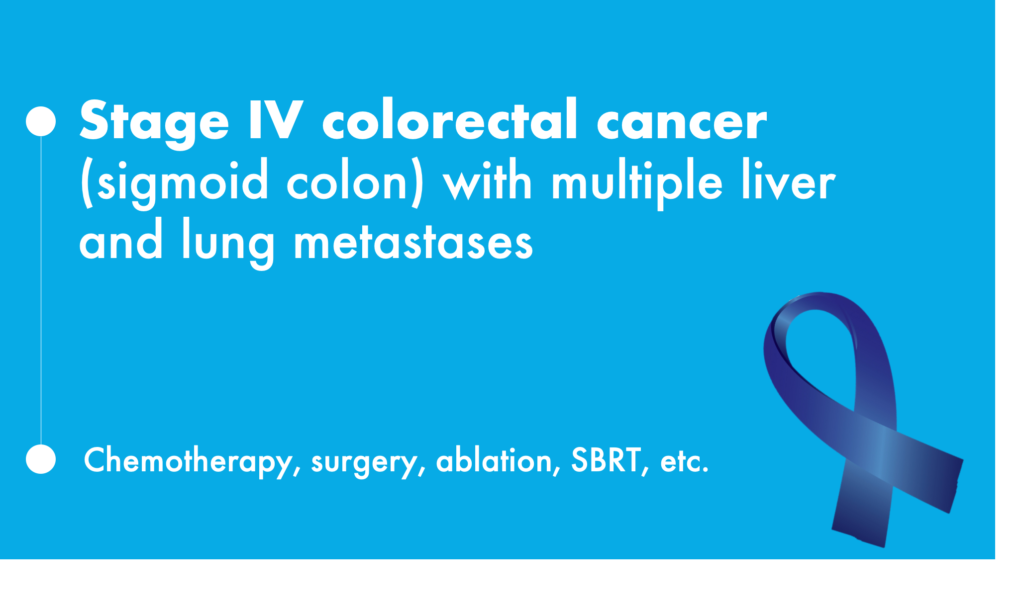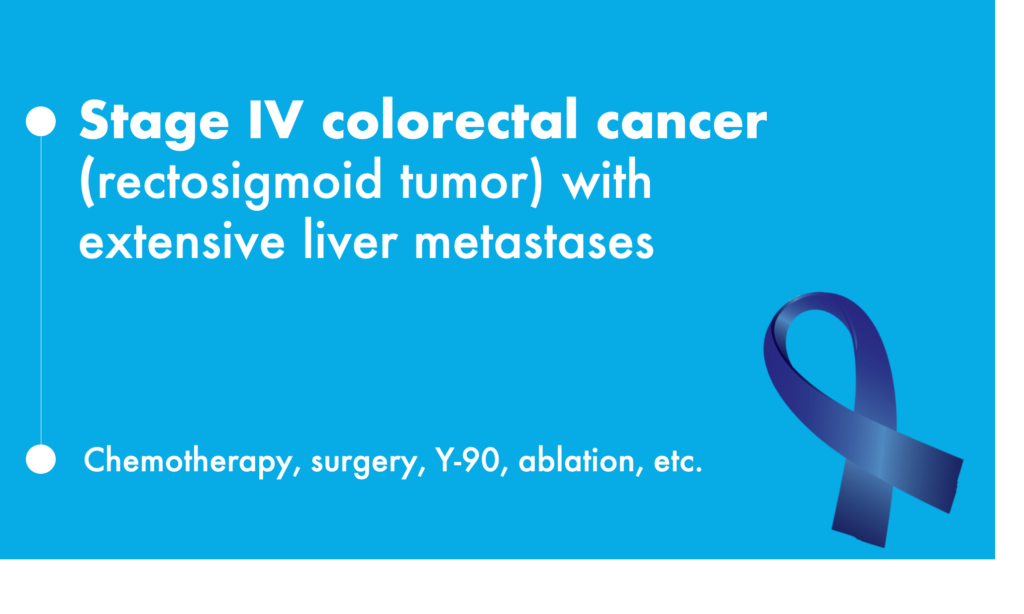Journey of Resilience
Beating the Odds: A Patient’s Triumph Over HER2-Positive Gastric Cancer
A Journey of Resilience, Advanced Treatment, and Hope
A 70-year-old man first sought medical attention for persistent left-sided and posterior chest pain. Initially treated for pneumonia, a follow-up CT scan revealed two concerning liver lesions. Further testing, including an endoscopic biopsy of a gastric mass, confirmed HER2-positive adenocarcinoma. A PET scan showed cancer present only in the stomach and liver, leading to a diagnosis of metastatic gastric cancer.
A multidisciplinary tumor board recommended an aggressive treatment approach. The patient began chemotherapy with capecitabine and cisplatin, later adjusted for better tolerance. Oxaliplatin was included but discontinued after three cycles due to side effects. Herceptin, a targeted therapy for HER2-positive cancer, was introduced and maintained every 21 days. Over 14 months, scans showed a near-complete response of the stomach tumor and over 50% shrinkage of the liver metastases.
With the tumor responding well, doctors proceeded with surgery. The patient underwent an 80% distal gastrectomy with BII reconstruction, omentectomy, cholecystectomy, and liver left lobectomy. He recovered smoothly and was discharged just five days post-surgery.
Two years after the initial diagnosis, the patient remains in good health. He has returned to full-time work, maintains a stable weight, and enjoys a normal diet. Follow-up scans and tumor markers (CEA and CA19.9) show no recurrence, with only a minor incisional hernia as a late surgical complication.
Diagnosis
Stage IV gastric cancer with liver metastases, confirmed through biopsy and PET scan
Biomarker profile: HER2-positive
Treatment
Chemotherapy, targeted therapy (Herceptin), and surgery, leading to significant tumor reduction
Outcome
Two years post-treatment, the patient remains cancer-free, living a full and active life
Source: Mohammed I, Nagisetty C, Iqbal A, et al. Eradication of Stage IV Gastric Cancer: Case Report. Marshall J Med. 2020; 6(3): 15 DOI: https://doi.org/10.33470/2379-9536.1259.


